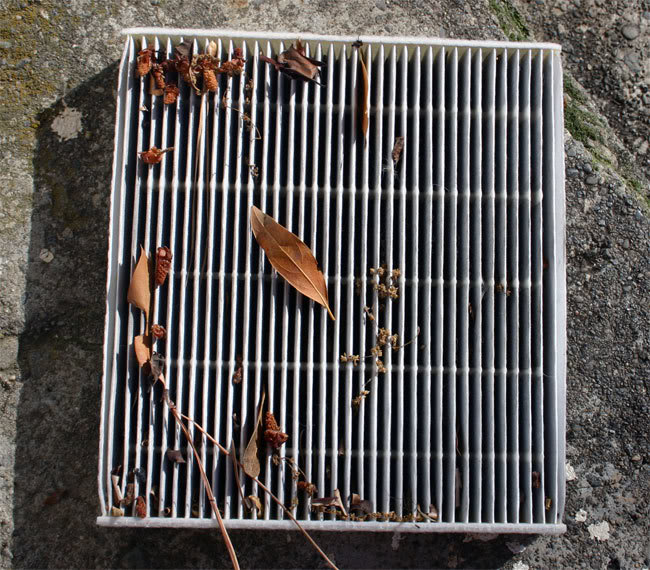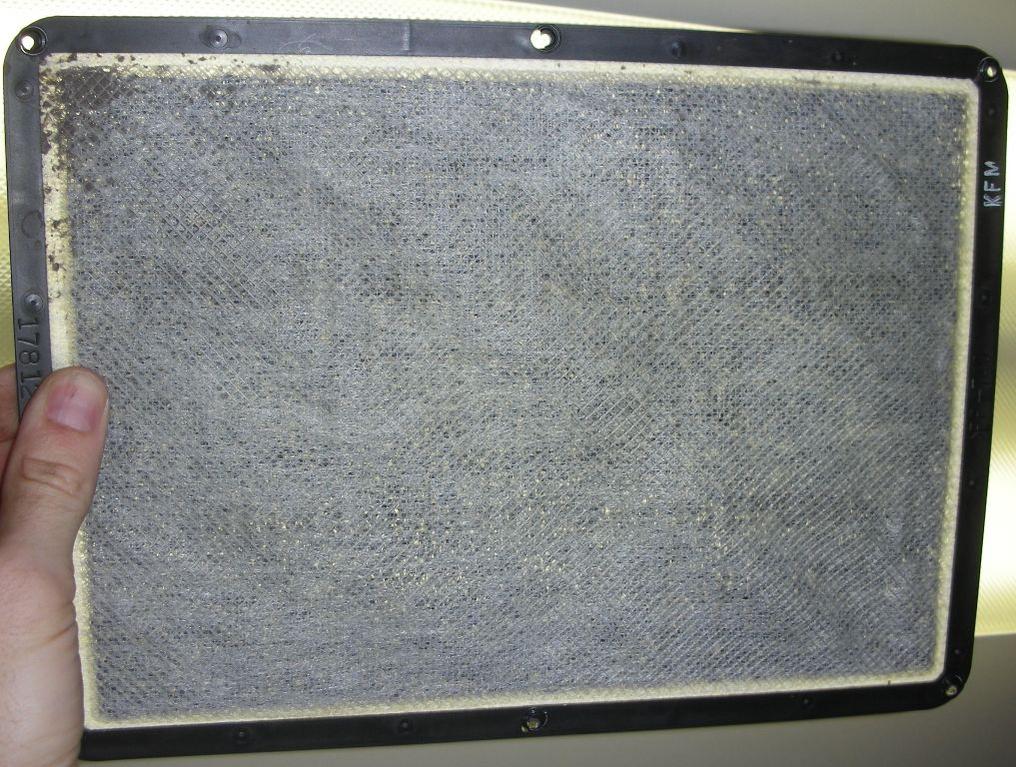Activated Charcoal Cabin Air Filters – Do They Live Up To The Hype?
Benjamin | Apr 11, 2011 | Comments 8
Cabin air filters are intended to keep the air quality inside your Toyota Tundra as fresh as possible. Most vehicles on the road have at least one cabin air filter installed, with luxury models such as the Lexus LS sedan offering five or more in order to maintain spring meadow-like levels of passenger compartment freshness.
The questions is, can we improve the quality and/or performance of these cabin air filters by switching from paper to activated carbon? Is it worth it? Here’s our take:
Paper Filters
Traditionally, cabin air filters have been simple paper designs, similar to the filters called upon to protect your engine’s air intake from dust and other debris. The thin paper elements in these filters are electrostatically charged in order to improve their ability to repel foreign particles, and they do a great job of keeping pollen, dirt, insects and small animals from clogging up your climate control system and distributing allergens through your air vents. Paper cabin air filters are so effective that they can block particles as small as 0.22 microns.
Atmospheric Pollutants
There is one area where paper filters fall a bit short, and that is when they are forced to deal with atmospheric pollutants like carbon monoxide and nitrogen oxide. These gases can become quite concentrated on stretches of road that see bumper-to-bumper traffic, and in some cases the level of CO2 inside a vehicle can be three times as high as the environmental level, due to the concentrating effects of the passenger compartment ventilation system and the lack of protection afforded by a paper filter.
The Benefits of Activated Charcoal
Carbon monoxide and nitrogen oxide are serious health hazards, and in order to help combat their presence inside a vehicle air filter manufacturers have developed paper filters that employ a layer of activated charcoal. Activated charcoal is specially processed to increase its porousness, which in turn improves its ability to absorb harmful gases. 0.035 ounces of activated carbon has a surface area of 5,380 square feet – an astounding number that hints at just how effective it can be at trapping and neutralizing pollutants.
Activated Charcoal – Worth the Extra Cost?
Activated carbon air filters are considerably more expensive than their standard paper equivalents, in some cases costing three times as much. Are they really worth the additional expense? The answer to that question would seem to depend largely on your own driving habits. If most of your time behind the wheel is spent in rural areas, or moving briskly down the highway, then the additional cost of an activated charcoal air filter is probably not worth paying. If you find yourself regularly slogging through rush hour traffic in your Tundra, however, then the additional air cleaning capabilities of activated charcoal might be a wise investment.
Filed Under: Maintenance Tips




yah, it has now been 1 1/2 years and 22K on my tundra and same cabin air filter. Pulled it out a few weeks ago and although much darker in color, not black yet and very few leaves/bugs in there to my surprise. Been 2 years and 28K on my corolla same cabin air filter and also same color, dark gray, with few signs of debris. Gonna have to get me one of these charcoal filters if not over 20 bucks. I found regular standard filters for 10 bucks or so.
My driving habits have me washing out my filter every 6 months along with my AFE Stage II filter. I wash both in mild detergent. My driving style has all 5 windows opened and the sunroof. But back in 08 I bought an adjustable air filter at Home Depot for $18. Cut it to the size of the cabin air filter and I doubled the mesh and put it together. It stops almost all the stuff mentioned. It has paid for itself over and over already. Made one for the wife’s Prius also.
[IMG]http://i247.photobucket.com/albums/gg151/Mickey9201/07%20Tundra/CabinAirFilter.jpg[/IMG]
[IMG]http://i247.photobucket.com/albums/gg151/Mickey9201/07%20Tundra/CabinAirFilterI.jpg[/IMG]
I replaced my stock cabin air filter with the charcoal one from Toyota dealership last year. It minimized the musty smell that occurs after the aircon is turned off. Works great for this condition but it doesn’t filter polluted exhaust smell from non-smog vehicles. I have not noticed any loss of air volume while using this filter.
mk – Benjamin makes a compelling case doesn’t he?
Mickey – Cool idea man. Great ‘hack’! 🙂
Art64 – Thanks for sharing that. I think that anyone with asthma would be really happy with this filter, not to mention people with a sensitive nose. Good to know.
I figure paying $8 for he filter, I can change it often enough. It’s been changed once since I had the Tundra….bad owner! Now I shall go check it out today and see what it looks like considering I’ve been traveling to dusty muddy offroad spots a bit since the year started.
TXTee – It’s easy to forget. 🙂
Looking for cars that have carbon air filtration… My Lexus 300 has it but apparently all Lexus don’t… Can it be added? And how do you find out if a car has it? Some dealerships don’t know! And they don’t know if it can be added!
Do charcoal cabin air filters really get rid of the smelly old car exhaust smell or do you still have to put it on recirculate to avoid breathing that in?